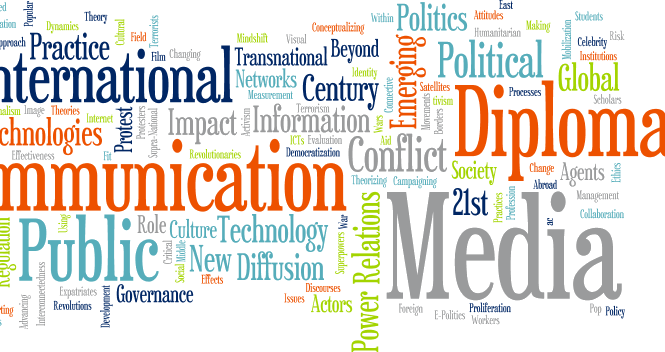Communication & International Communication 1. What is Communication? • The word communication has originated from a Latin word “Communes” which means something common. • Communication is a process of exchanging information, ideas, thoughts, feeling and emotions through speech signals, writing or behavior. • In communication process, a sender encodes a message and then using a medium and send it to appropriate feedback using a medium 3. Importance of Communication • Express thoughts, ideas and feelings • Creating awareness • To fulfill a goal • Highlight issues • Progress, development • Educating the masses etc. 4. Process of Communication 5. Types of Communication • People communicate with each other in a number of ways that depend upon the message and its context in which it is being sent. • Types of communication based on the communication channels used are – • Verbal Communication • Nonverbal Communication 6. Nonverbal Communication • Nonverbal […]
Philosophy of Communication
Philosophy of Communication Whenever people communicate, questions of right and wrong arise. People always wonder if the statement was said right or not, they scrutinize others statement more than their own. Ethical communication is fundamental to responsible thinking, decision making, and the development of relationships and communities within and across contexts, cultures, channels, and media. Moreover, ethical communication enhances human worth and dignity by fostering truthfulness, fairness, responsibility, personal integrity, and respect for self and others. Unethical communication threatens the quality of all communication and consequently the well-being of individuals and the society in which we live. We should be committed to practicing the following principles of ethical communication: Truthfulness, accuracy, honesty, and reason as essential to the integrity of communication. This is the basis of proper ethical communication. Everything begins with honesty. I believe communication would be of no value in most cases if it were not for […]
Ideas are Diffused in Society & Process of Diffusion of Innovation
How new ideas are diffused in society? elaborate the process of diffusion of innovation. Diffusion is the process by which an innovation is communicated through certain channels over time among the members of a social system. Diffusion is a special type of communication concerned with the spread of messages that are perceived as new ideas. An innovation, simply put, is “an idea perceived as new by the individual.” An innovation is an idea, practice, or object that is perceived as new by an individual or other unit of adoption. The characteristics of an innovation, as perceived by the members of a social system, determine its rate of adoption. The four main elements in the diffusion of new ideas are: (1) The innovation (2) Communication channels (3) Time (4) The social system (context) The innovation Why do certain innovations spread more quickly than others? The innovation, to spread and be adopted […]
Reasons for Survival of British Kingship
In a late survey by a British daily paper it was demonstrated that “70% of British individuals are supportive of the government.” So what does government accomplish for us then? Well until 1603 the English and Scottish crowns were partitioned; this was until the increase of King James VI of Scotland (I of England) to the English Throne. From that point a solitary ruler ruled in the U.K. After the seventeenth century, rulers lost official force and they progressively got to be liable to parliament. This brought about today’s sacred government. So British Monarchy these days does not have much power. However there are motivations to keep the British Monarchy. Research demonstrates that our government is one that has made due for a long time and is as of now the longest enduring government on the planet. This is a motivation behind why individuals are agreeable to the British government, […]
JOURNALISM A PROFESSION OR A CRAFT?
JOURNALISM A PROFESSION OR A CRAFT Presentation The Oxford Advanced Learners lexicon (2010; 808) characterizes news-casting as “the work of gathering and composing news stories for daily papers, magazines, radio and TV.” There has dependably been a disarray on whether news coverage is a calling of a specialty. Reporting has dependably been seen as some sort of fine art, when contrasted with different callings. This is because of the way that when individuals consider news coverage, they constrain it to composing, showing and babble. This blog entry will examine in points of interest why Journalism is viewed as a calling instead of an art. Reporting simply like some other calling, has a few components to it, for example, the way of life of news-casting, gatekeeping in media and morals. These components will be talked about later in this post. WHY JOURNALISM IS CONSIDERED A PROFESSION The term calling is depicted as […]
Cross Media Ownership Ordinance in Pakistan
Media cross-ownership is the ownership of multiple media businesses by a person or corporation. These businesses can include broadcast and cable television, film, radio, newspaper, magazine, book publishing, music, video games, and various online entities. Much of the debate over concentration of media ownership in the Pakistan has for many years focused specifically on the ownership of broadcast stations, cable stations, newspapers and websites. On 12th July 2003, The federal cabinet took a major step to expand and liberalise private ownership of electronic media by approving an amendment in the Pakistan Electronic and Media Regulatory Authority (PEMRA) Ordinance, which will allow cross-media ownership. Ten new channels would get permission under the amended ordinance and Pakistan Television would also start its two new channels, one of which would be for Azad Jammu and Kashmir (AJ&K). He said the prime minister noted at the meeting that the plurality of views was the government’s […]
